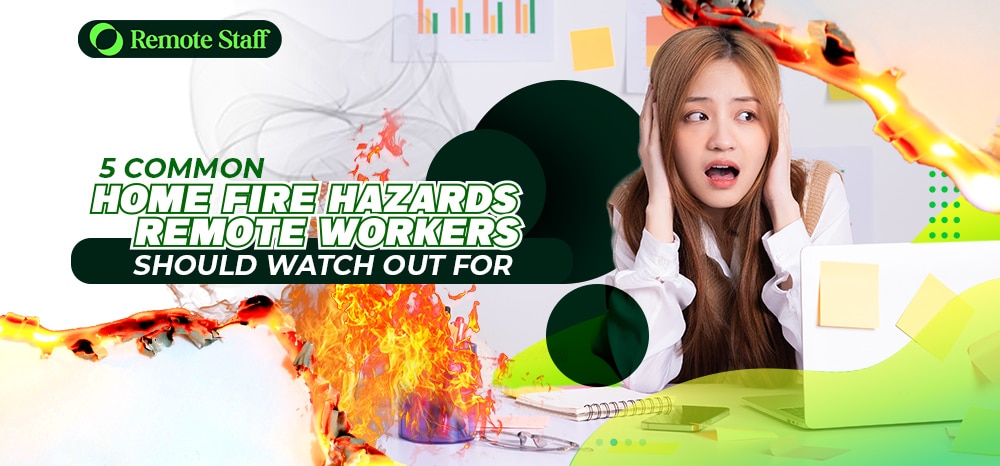Fires are one of the most common disasters at home. And since many workers are working remotely, it is vital to be on the lookout for common home fire hazards to protect your families and houses from fires.
Last year, the Bureau of Fire Protection (BFP) recorded 13,029 fires in the country from January 1 to December 26. This number was 4.02% lower than the one for 2021, which was 13,574.
To help further lower these numbers this year, here are some common home fire hazards to watch out for.
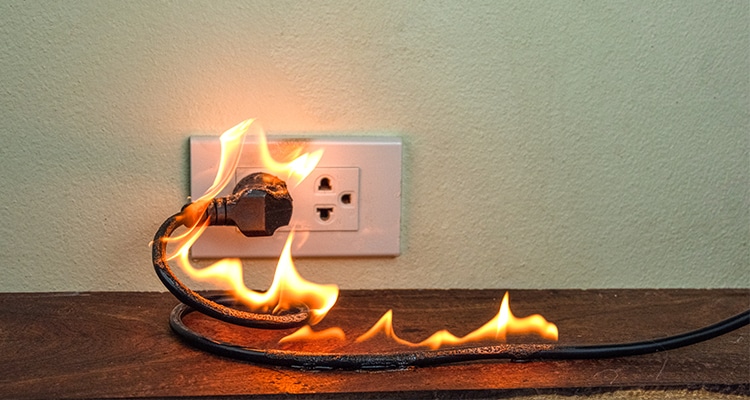
Faulty Electrical Connections.
The most common causes of fire at home are faulty electrical connections. These include old wiring, improper connections, and poor wire quality.
Some or all of these combined could lead to electrical overloading. Electrical overloading occurs when there’s too much current flowing in a wire than it can handle. This causes the wires to heat up and melt, which could lead to fires.
To ensure this doesn’t happen, regularly check all electrical cords and the wiring of your appliances, especially your laptops/computers and electric fans. If any of them are damaged, replace them immediately.
In addition, if you have pets at home, make sure they won’t be able to reach and gnaw at your appliance’s wires and electrical cords. Don’t forget to clean the areas near electrical sockets, as gathering dust there is another common home fire hazard.
Remember to also be mindful of your power outlets and always unplug appliances when they’re not in use. If you tend to charge your phone while in bed, keep an eye on it, as phones emit significant amounts of heat that could cause a fire.
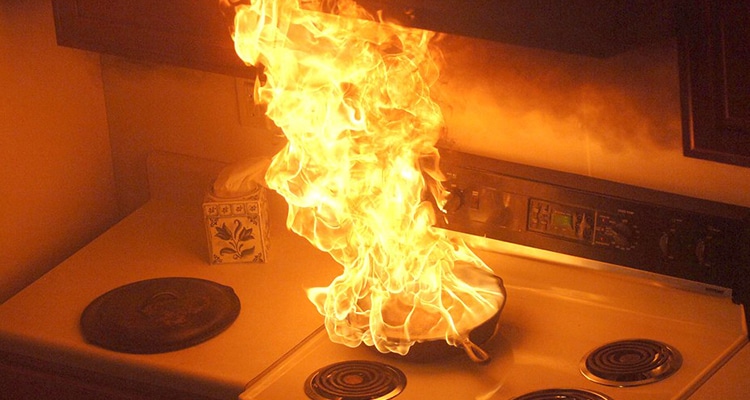
Unattended Stovetops, LPG’s, and Kitchen Litter.
Unsurprisingly, many house fires often start in the kitchen. These are often the result of unattended stovetops, leaky LPG containers, and clutter in the kitchen like used paper towels, food wrappers, and leftover grease.
Thus, one way to address these fire hazards is by regularly cleaning your kitchen after using it. This ensures that there are no flammable items anywhere near the stove.
Don’t forget to clean any leftover grease on your cooking equipment, as it can also be a potential fire hazard. And if you’re not using your stove, always turn it off and regularly check your stove’s gas regulator for leaks or damages.
And when purchasing LPG tanks, always check if the container has leaks or if its gas cap has been removed. Never use a damaged LPG container, as they have a high chance of exploding if they come into contact with heat.

Glassware.
Sometimes, even mundane household items can become fire hazards if improperly stored. Take glassware, for example.
We usually don’t think much about where we place our glass decor so long as it matches the room’s aesthetic. But when placed close to windows, they can reflect and magnify the sun’s rays on a hot day, which can cause fires.
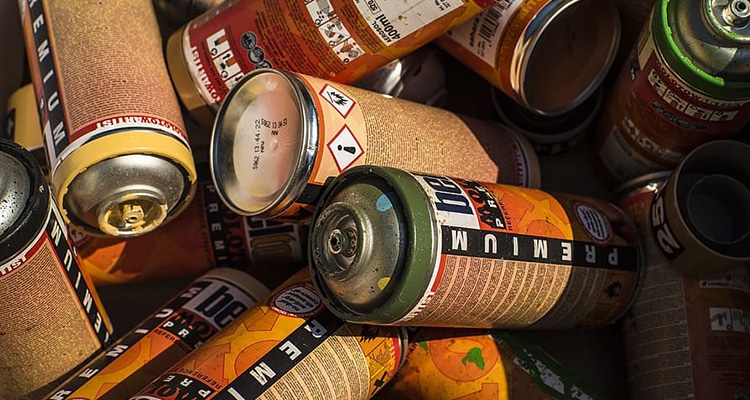
Improper Storage of Flammable Materials.
One of the most common home fire hazards is flammable materials being stored in places where they shouldn’t be. Nothing brings imminent trouble more than matches lying around in your house where children can readily get them.
Thus, you should avoid storing flammable materials like oil, paint, paper, and wood in damp and warm places or near exits and elevators. Place them in a well-ventilated storage area and away from sources of fire or heat.
If you have children at home, place flammable objects in higher places where they can’t easily reach them. Don’t forget to label flammable items and teach your children what they are and to stay away from them.

Candles.
Brownouts are an unfortunate yet common part of many Filipinos’ lives, especially now that rising oil prices are causing rotational brownouts.
And during brownouts, what’s the most common light source we use to light our homes? Why candles, of course.
However, candles are another common fire hazard, especially if left unattended or near flammable objects like cloth or paper. That is why it should always be placed in a candle holder, and away from things like curtains or books.
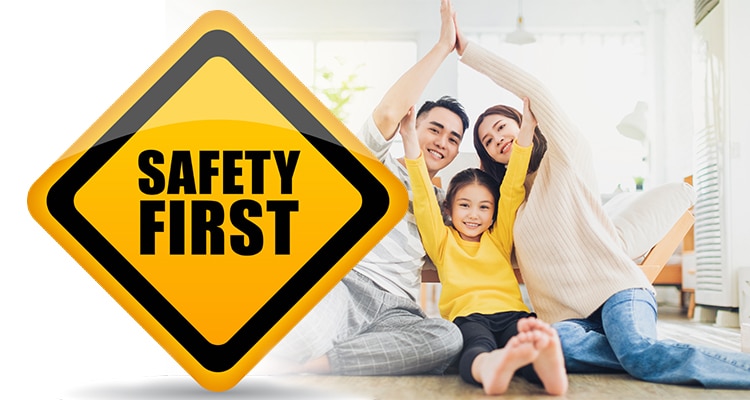
Only You Can Prevent Housefires.
Nobody wants to lose everything they’ve worked hard for to a fire. And knowing how to prevent fire hazards from appearing at your home/remote workplace is a big step towards protecting your home and family.
As they say, knowing is half the battle. By being aware of the common causes of fires at home and ways to prevent them from becoming a threat, you can keep a hazard-free remote workplace.
If you’re looking for online job opportunities that you’ll get along with like a house on fire (no pun intended), Remote Staff is the place to go. Our jobs list contains various jobs you can choose from, so you’ll never run out of options.
Good luck, and remember to always practice fire safety, not just this Fire Prevention Month but all year-round.

